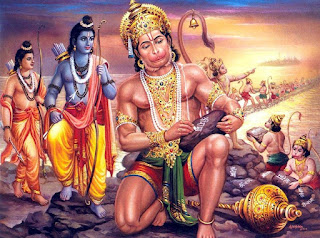Acharya Alavandar
ACHARYA Mahabhashya Bhattar / Mannakkal Nambi(Rama Misrar)
SISHYAS Periya Nambi, Thirukkoshtiyur Nambi, Periya Thirumalai Nambi, Maraneri Nambi, Thirukkacchi Nambi, Alavandar Azhvar, Thirumaalai Aandaan, Vanamamalai Aandaan, Dheivavari Aandaan, Eesan Aandaan, Jiyar Aandaan, Thirukkurugur Appan, Thirumogur Appan, Thirumogur Misran, Dheivap Perumal, Vakulabharana Somaya Jiyar, Thirukkurugur Daasar, Thirumaliruncholai Daasar, Vada Madurai Pirandhaar and Aalkondi Ammangi, twenty in all.
YEAR OF BIRTH 916 AD
TAMIL MONTH Adi
NAKSHATRAM Uttaradam
PARENTS Iswara Bhatta & Ranganayaki
PLACE OF BIRTH Viranarayanapuram (Kattamannargudi)
NAME AT BIRTH Yamunacharya, Yamunaituraivan
GOTHRAM Shadamarshana
WORKS Chathusloki, Stotraratnam, Siddhitrayam , Agama Pramanya , Maha Purusha Nirnayam, Gitartha Sangraha, Nityam Mayavada Khandanam
TANIYAN (rendered by Swami Ramanuja)
Yathpaadhaamboruha Dhyaana vidhvasthaasheShkalmaShah |
Vasthuthaamupayaatho aham yaamuneeyam namaami tham ||
LINKS
http://www.srivaishnavan.com/tomcat/alavandar.html,
http://www.srivaishnava.org/sva/alavan.htm
https://en.wikipedia.org/wiki/Yamunacharya
http://www.mudaliandan.com/alavandar.php
http://www.ahobilamutt.org/us/acharya/lineage/lineage.asp?file=04-alav.inc
https://www.youtube.com/watch?v=48TNcTy3y8o
http://www.ibiblio.org/sadagopan/ahobilavalli/catussloki.pdf
http://www.sadagopan.org/index.php/categories/cat_view/54-acharyas/57-pre-sri-ramanuja
http://saranagathi.org/blogs/books/sri-alavandar%E2%80%99s-stotraratnam-commentary/
http://www.saranagathi.org/acharyas/yamuna/index.htm
ACHARYA Mahabhashya Bhattar / Mannakkal Nambi(Rama Misrar)
SISHYAS Periya Nambi, Thirukkoshtiyur Nambi, Periya Thirumalai Nambi, Maraneri Nambi, Thirukkacchi Nambi, Alavandar Azhvar, Thirumaalai Aandaan, Vanamamalai Aandaan, Dheivavari Aandaan, Eesan Aandaan, Jiyar Aandaan, Thirukkurugur Appan, Thirumogur Appan, Thirumogur Misran, Dheivap Perumal, Vakulabharana Somaya Jiyar, Thirukkurugur Daasar, Thirumaliruncholai Daasar, Vada Madurai Pirandhaar and Aalkondi Ammangi, twenty in all.
YEAR OF BIRTH 916 AD
TAMIL MONTH Adi
NAKSHATRAM Uttaradam
PARENTS Iswara Bhatta & Ranganayaki
PLACE OF BIRTH Viranarayanapuram (Kattamannargudi)
NAME AT BIRTH Yamunacharya, Yamunaituraivan
GOTHRAM Shadamarshana
WORKS Chathusloki, Stotraratnam, Siddhitrayam , Agama Pramanya , Maha Purusha Nirnayam, Gitartha Sangraha, Nityam Mayavada Khandanam
TANIYAN (rendered by Swami Ramanuja)
Yathpaadhaamboruha Dhyaana vidhvasthaasheShkalmaShah |
Vasthuthaamupayaatho aham yaamuneeyam namaami tham ||
LINKS
http://www.srivaishnavan.com/tomcat/alavandar.html,
http://www.srivaishnava.org/sva/alavan.htm
https://en.wikipedia.org/wiki/Yamunacharya
http://www.mudaliandan.com/alavandar.php
http://www.ahobilamutt.org/us/acharya/lineage/lineage.asp?file=04-alav.inc
https://www.youtube.com/watch?v=48TNcTy3y8o
http://www.ibiblio.org/sadagopan/ahobilavalli/catussloki.pdf
http://www.sadagopan.org/index.php/categories/cat_view/54-acharyas/57-pre-sri-ramanuja
http://saranagathi.org/blogs/books/sri-alavandar%E2%80%99s-stotraratnam-commentary/
http://www.saranagathi.org/acharyas/yamuna/index.htm









